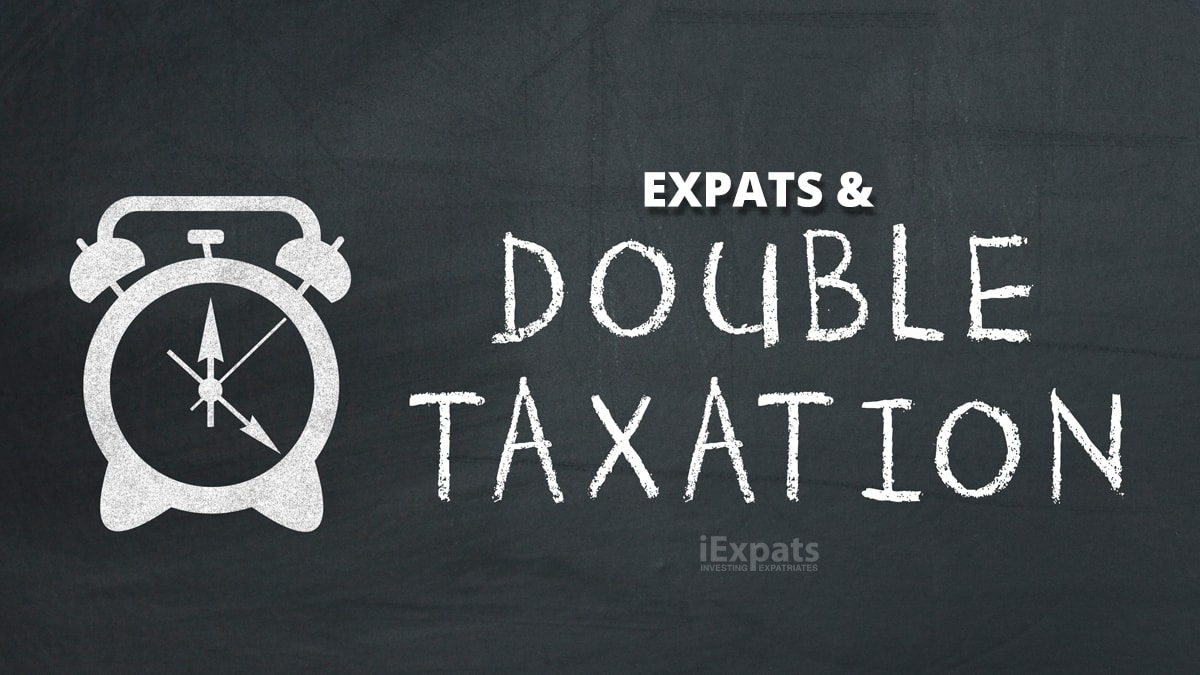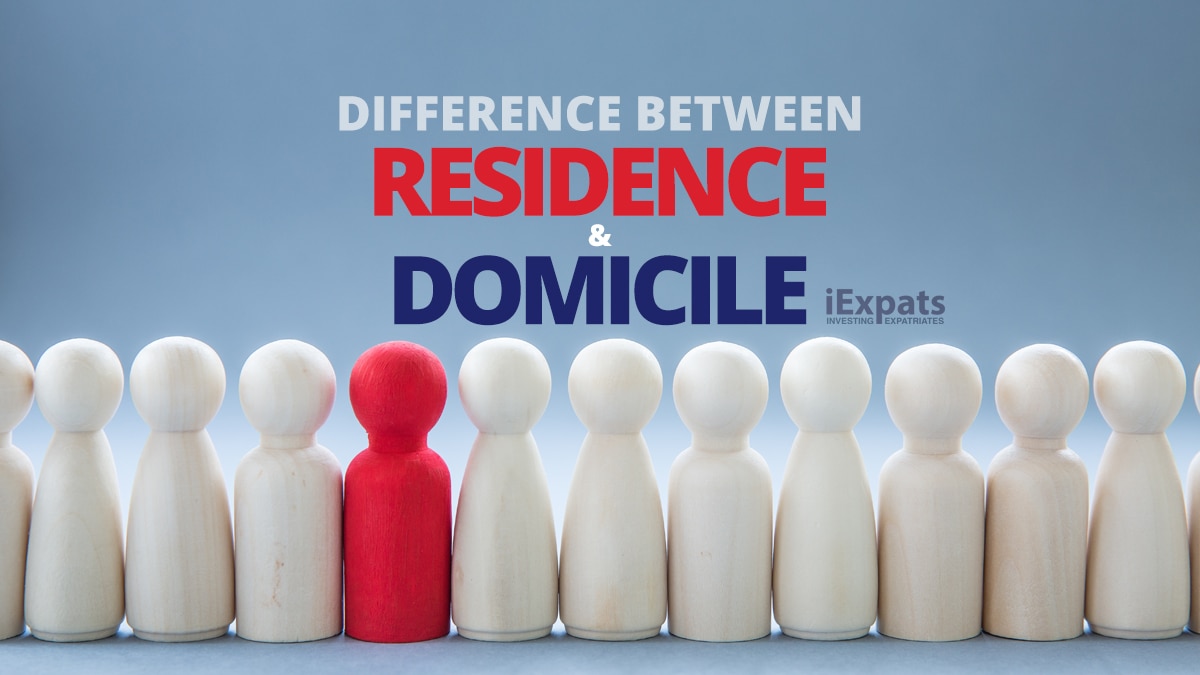Estimated reading time: 7 minutes
British expats’ residence and domicile determine how much tax they are likely to pay, both in their country and the UK.
Understanding residence and domicile is the foundation of tax and estate planning.
Expats cannot make solid plans for their financial futures without knowing their tax residence and domicile.
While expats can change their tax residence by moving their main home, changing domicile is a lot harder.
it is difficult to change your domicile
Expats will pay income tax on income arising in the UK from pensions, investments and buy-to-let property rents. They must also pay capital gains tax when they dispose of an investment, such as stocks, shares, or a rental home.
To some extent, domicile will also influence what happens to someone’s wealth when they die.
This guide looks in detail at residence and domicile for British expats and explains the key terms.
Table of contents
What Is a British Expat?

That’s the question at the heart of finding out residence and domicile. The problem is tax law does not explain what makes someone an expat. In fact, the term is not mentioned.
The dictionary definition of an expat is someone who lives in a country other than where they were born.
But someone can live in another country and still be a tax resident of their birthplace because they have only recently moved or intend to return home after a short while.
So, time is important to the definition of an expat place.
Here are a couple of examples to help explain:
- A British expat on a 12-month contract abroad rents a temporary home overseas but keeps another home in the UK to return to when the contract ends. This expat is likely to remain a UK tax resident, although they consider they are an expat.
- Another British expat works alongside the one mentioned above. They buy a home overseas and sell their property in the UK to never return. This expat has moved tax residence out of the UK to the country, which is now home and, like their colleague, considers them an expat.
Who Decides Where an Expat is Tax Resident?
Someone is considered tax resident in the UK if they:
- Stay in the UK for 183 days or more during a tax year
- Keep their main home in the UK
- Work full-time in the UK over 365 days but not necessarily a tax year
If you are tax resident in the UK HM Revenue & Customs will take your worldwide income and gains to apply UK taxes.
For non-residents, UK tax is only due on any income or gains arising in the country.
An important point is someone cannot decide whether they are an expat or non-resident for tax in any country. The decision depends on the time spent in a country and where someone considers they have their main home.
Most countries have similar residence rules to the UK, so expats should check with the government department or a tax professional to determine where they are tax residents.
Why Tax Residence Is Important
Once an expat has confirmed tax residence, they can start financial planning.
Laying financial plans before finding out your tax residence can be a costly waste of time because you do not know if you are liable to taxes on your earnings.
For example, a non-resident cannot claim tax relief on UK pension contributions or invest in the Seed Enterprise Investment Scheme (SEIS). Paying money in and losing tax relief is bad enough, but paying taxes or penalties on withdrawing the cash is even worse.
Tax residence rolls out a route map of logical investments and financial strategies for an expat.
Opportunities like investing in offshore bonds and the Qualifying Recognised Overseas Pension Scheme (QROPS) open for many British expats closed while they kept UK tax residence.
How To Help Show Tax Residence
Establishing UK non-residence is simply the task of running through a checklist and altering your finances and personal affairs to match.
In cases before tax courts, judges have set out a list of determining factors that make someone tax resident.
They include:
- Keeping a home as a base in the UK
- Keeping UK bank accounts and credit cards
- Retaining a UK driving licence
- Maintaining family ties in the UK – such as a spouse and children staying in the family home
- Spending 163 days or more in the UK every tax year
The checklist helps, but the taxpayer’s personal circumstances decide each case.
In the UK, HMRC relies on the Statutory Residence Test for guidance on if someone is tax resident or not.
Double Taxation Treaties

Double Taxation Treaties are agreements between two countries over which one takes precedence over tax.
The aim is to stop double jeopardy for a taxpayer who could unfairly pay tax on the same income in different countries.
Most developed countries have long lists of treaties with other nations – there are more than 3,000 active treaties between 120 countries.
Click here for a list of treaties between the UK and other countries
Basically, the way they work is if someone pays tax in one country and is liable to pay tax on the same income or gains in another as well, one of the authorities issues a certificate to confirm the amount of tax paid.
This certificate is given to the second tax authority which then deducts the tax paid from the tax due.
Domicile Explained
Domicile is a complex tax topic that is not relevant to many people’s tax affairs if they are non-resident but is likely to have a bearing on Inheritance Tax when someone dies.
Domicile is an abstract concept that ignores nationality, where someone is a citizen and where they live.
Confusingly, an expat can have three domiciles:
Domicile of origin
This is where your father was domiciled when you were born, but is not necessarily the same place
Domicile of dependence
For someone under 16 years old, their domicile follows suit when the person they are dependent on changes their domicile
Domicile of choice
For someone aged 16 or over, who can show:
- They are living permanently in a new country they consider is home
- They intend to stay in the new country for good
- All personal ties have been broken with the country which was their domicile of origin
Some countries, like the UK, also label a ‘deemed domicile’. This means some expats who are non-residents are treated as UK residents for tax.
This affects expats who are:
- Domiciled outside the UK but were born or had a domicile of origin in the UK
- Tax resident for 15 out of the past 20 years in the UK
Need Help with your Finances?
Domicile And Inheritance Tax
Someone with a UK domicile may be liable to IHT when their wealth changes hands on their death.
For non-residents, IHT is only due on UK assets.
Someone is deemed liable for UK IHT if they transferred assets up to three years before their death even if they were non-resident for income and capital gains taxes.
What To Do About Residence And Domicile As A British Expat
Don’t leave important decisions about residence and domicile to chance.
Leaving the door open can lead to the costly unravelling of carefully laid tax and financial plans.
Take professional advice in the UK and the country you call home – and anywhere along the way where you have cash, property, or investments.
Another key decision is writing a will in each country where you have assets to ensure your wealth is left to the family and friends you want to inherit from your hard work.
Related Information
Below is a list of related articles you may find of interest.
